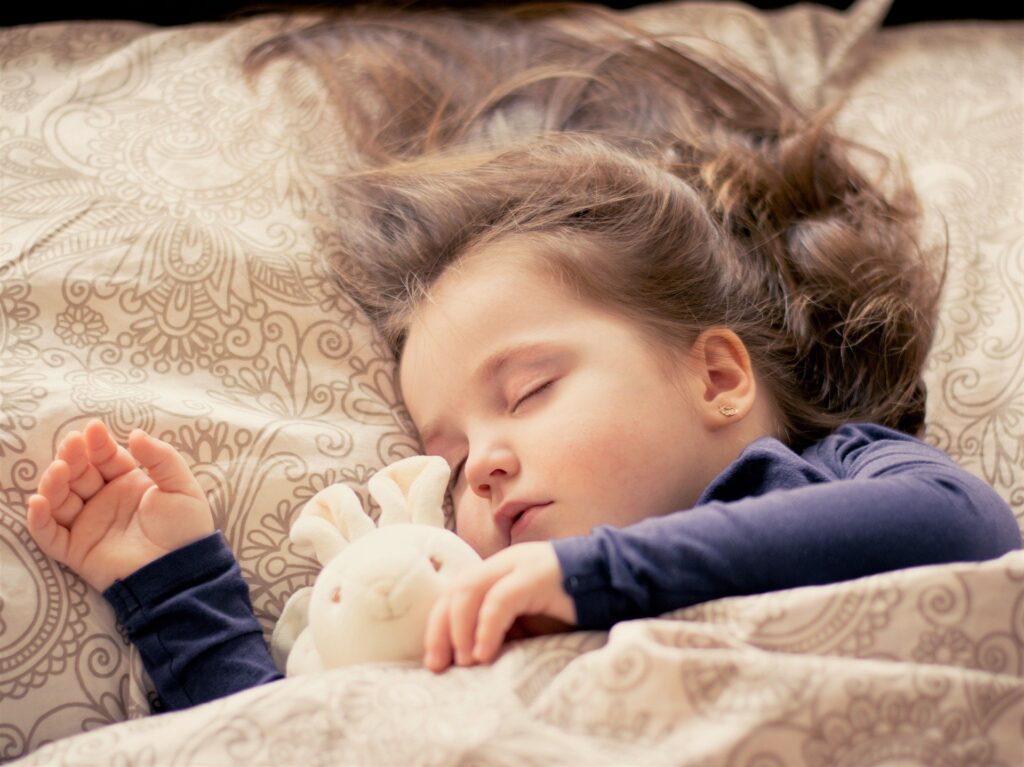A bedtime routine for children to ensure good sleep
If you have a young child, you know that it can sometimes be difficult to get them off to sleep. However, instilling a bedtime routine can help your children sleep better at night.

How much sleep do children need?
Unfortunately, there is no clear-cut answer for this one. However, the younger the child is, the more sleep they need. For example, newborns and infants need between 12 and 17 hours sleep a day, while pre-schoolers and school-aged children need between 10 and 13 hours.
Regardless of the age of your child, one thing is clear — developing a bedtime routine for children will promote better sleep.
Benefits of bedtime routines for children’s sleep
Having a clear bedtime routine has a number of benefits for your child.
Firstly, it will help you child fall asleep faster and stay asleep longer. This means they will get better overall quality of sleep. Bedtime routines have also been shown to help manage sleep problems such as night terrors and sleep walking, as well as manage bedtime behaviours that adversely affect sleep quality. These include a reluctance to going to bed, tantrums, not going to sleep without a parent present, or leaving the bedroom after being put to bed.
What should children’s bedtime routines include?
The whole point of a bedtime routine is to soothe and calm your child in preparation for sleep. That means activities that are likely to stimulate or excite them should be avoided. These include loud games, video games, watching TV or having serious or difficult conversations. Ideally, your child’s bedtime routine should include:
- Personal hygiene (e.g. having a bath, going to the toilet and cleaning teeth)
- Quiet bedtime activity (e.g. reading a story, quiet talking or listening to relaxing music)
- Physical affection (e.g. cuddles before bed and a kiss goodnight).
Your bedtime routine should be the same each night, and should happen at around the same time each night.
Other things that help
It’s important not to rely on bedtime routines alone to help your child sleep well. Getting plenty of natural light during the day, engaging in physical activity and keeping regular sleep and wake times can also help set your child’s natural sleep rhythm and promote good sleep when it’s time to go to bed.
You should also:
- Ensure your child’s room is quiet and dimly lit. Use a night-light if your child is afraid of the dark.
- Check your child’s bedroom isn’t too hot or too cold
- Make sure your child eats a couple of hours before they go to bed
- Avoid giving your child large amounts of liquid before bed, to avoid the need to go to the toilet during the night
- Make sure you child has gone to the toilet before bed, to prevent night-time trips to the toilet or bedwetting.
If your child is still being toilet-trained, or experiences overnight bedwetting, let us help you with a waterproof mattress. Designed to repel liquid, odour and stains you can simply blot up any mess with a paper towel. Stains and odours are removed without the need for mattress protectors, or washing. Browse our range today.





